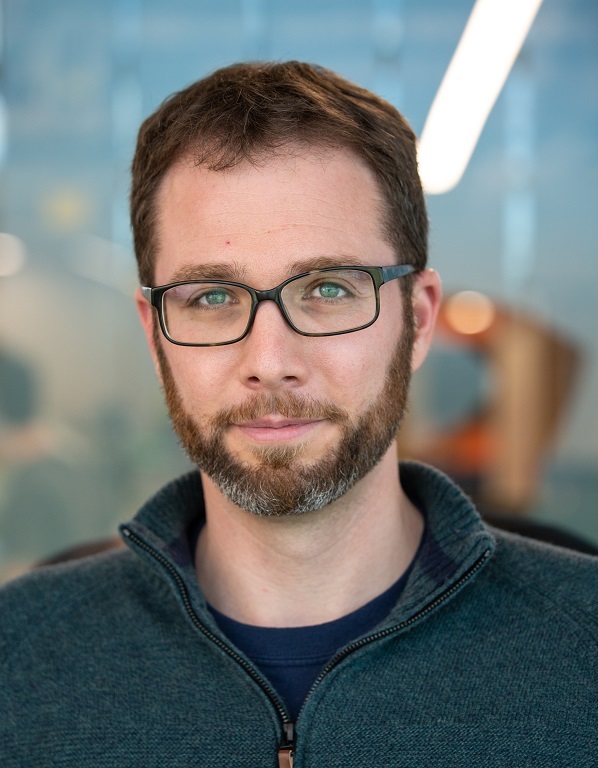The continual depletion of our soil due to industrial farming methods requires us to rethink how to make growing food sustainable. Organic farming avoids many of these destructive methods, but it is labor intensive and so the food tends to be more expensive, meaning that it is less accessible. To help make organic food accessible to all and to improve the sustainability of food production, this project will explore ways to use robots to assist in organic farming and gardening.
There are many farming tasks, such as pulling weeds, identifying diseases, harvesting, and applying fertilizer that could be done by robots. However, robots lack the intelligence to do these tasks in a wide range of environments. Developing the robots’ capabilities to perform such tasks is difficult and we want to be sure to identify the most high-impact tasks for the robots to perform so that we can focus our efforts accordingly. Thus this project, in collaboration with the U-M campus farm, will consist of two parts: 1) One group of students will interview farmers and other community members and analyze economic data to determine which tasks would be most impactful; and 2) Another group of students will develop software for the robot which allows it to perform farming tasks. The project will produce a report on economic impact and preliminary software that we can build upon in future years.
Meeting Details
TBD Weekday afternoons
Modality: In-person (interested in the project but unable to be on campus? Contact us to inquire!)
Robotics Engineer (2 Students)
Preferred Skills: Strong experience writing code in Python and/or C++. Experience with robotics including motion planning, visual servoing, and perception for robotics is a plus.
Likely Majors/Minors: CE, CS, EE, ROB
Community Needs Assessment (2 Students)
Preferred Skills: Ability to design surveys and perform needs assessment. Willingness to interact with farmers in the local area.
Likely Majors/Minors: CASC, EARTH, ENVIRON, PITE, PUBPOL, PSYCH, SI, SOC
Organic Agriculture Lead (1 Student)
Preferred Skills: Familiarity with modern organic agriculture methods and practices. Significant experience with farm work.
Likely Majors/Minors: ARTDES, BIO, BIOCHEM, EARTH, ENVIRON, ME, PITE, PUBHLTH
Organic Horticulture Leads (2 Students)
Preferred Skills: Familiarity with modern organic horticulture methods and practices. Significant experience with gardening.
Likely Majors/Minors: ARTDES, BIO, BIOCHEM, EARTH, ENVIRON, ME, PITE, PUBHLTH
Faculty Project Lead
 Dmitry Berenson received a B.S. in Electrical and Computer Engineering from Cornell University in 2005, where he started his robotics work in Hod Lipson’s lab. He went on to graduate from the Ph.D. program at the Robotics Institute at Carnegie Mellon University (CMU) in 2011, where his advisors were Siddhartha Srinivasa and James Kuffner. While at CMU, Berenson worked in the Personal Robotics Lab and completed interships at the Digital Human Research Center in Japan, Intel Labs in Pittsburgh, and LAAS-CNRS in France. In 2012, Berenson completed a post-doc at UC Berkeley working with Ken Goldberg and Pieter Abbeel. He was an Assistant Professor at WPI 2012-2016 and started as faculty in the EECS Department at the University of Michigan in 2016. Berenson is also a member of the Michigan Robotics Institute. His current research focuses on learning and motion planning for manipulation and he has received the IEEE RAS Early Career Award and the NSF CAREER award.
Dmitry Berenson received a B.S. in Electrical and Computer Engineering from Cornell University in 2005, where he started his robotics work in Hod Lipson’s lab. He went on to graduate from the Ph.D. program at the Robotics Institute at Carnegie Mellon University (CMU) in 2011, where his advisors were Siddhartha Srinivasa and James Kuffner. While at CMU, Berenson worked in the Personal Robotics Lab and completed interships at the Digital Human Research Center in Japan, Intel Labs in Pittsburgh, and LAAS-CNRS in France. In 2012, Berenson completed a post-doc at UC Berkeley working with Ken Goldberg and Pieter Abbeel. He was an Assistant Professor at WPI 2012-2016 and started as faculty in the EECS Department at the University of Michigan in 2016. Berenson is also a member of the Michigan Robotics Institute. His current research focuses on learning and motion planning for manipulation and he has received the IEEE RAS Early Career Award and the NSF CAREER award.
Dmitry Berenson’s research focuses on creating algorithms that allow robots to interact with the world. These general-purpose learning, motion planning, and manipulation algorithms can be applied to robots that work in homes, factories, and operating rooms. He is interested in all aspects of algorithm development; including creating efficient algorithms, proving their theoretical properties, validating them on real-world robots and problems, integrating them with sensing and higher-level reasoning, and distributing them to open-source communities. He draws on ideas in search, optimization, machine learning, motion planning, control theory, and topology to develop these algorithms and to prove their properties. He also seeks to develop algorithms which can generalize to many types of practical tasks and application areas.
Students: 7
Likely Majors/Minors: ARTDES, BIO, BIOCHEM, CASC, CE, CS, EARTH, EE, ENVIRON, ME, PITE, PSYCH, PUBHLTH, PUBPOL, ROB, SI, SOC
Meeting Details: TBD Afternoons
Application: Consider including a link to your portfolio or other websites in the personal statement portion of your application to share work you would like considered as part of your submission.
Summer Opportunity: Summer research fellowships may be available for qualifying students.
Citizenship Requirements: This project is open to all students on campus.
IP: Students who successfully match to this project team will be required to sign an Intellectual Property (IP) Agreement prior to participation.
Course Substitutions: CoE Honors
